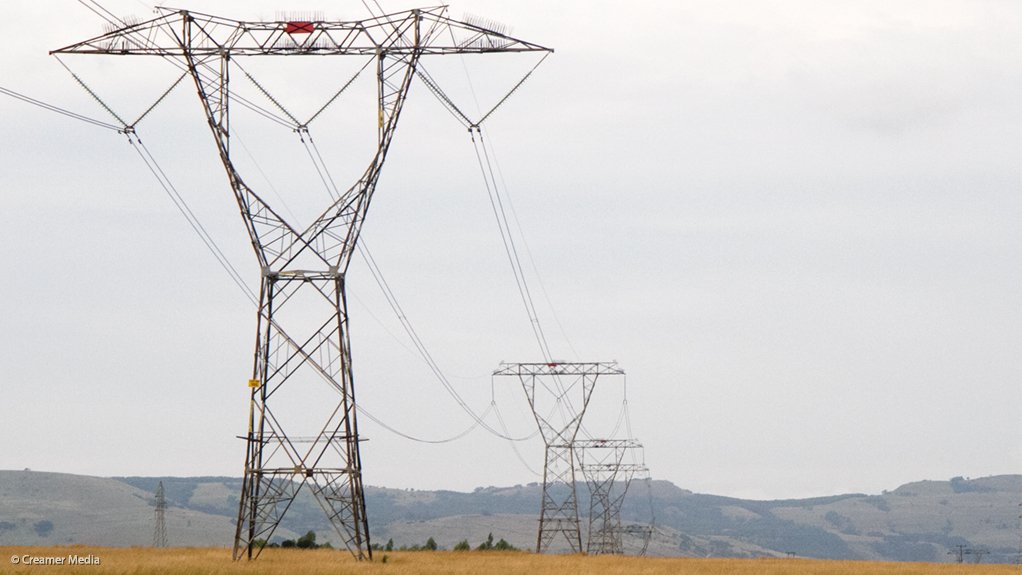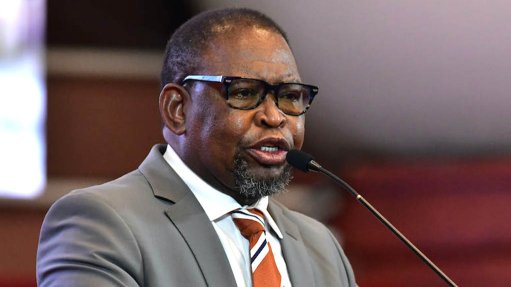Former IPP Office head now sees definite role for private sector in grid development
The former head of South Africa’s Independent Power Producer (IPP) Office, Karen Breytenbach, believes there is a compelling case for the injection of private sector investment to accelerate the roll-out of new electricity grid infrastructure, as has been proposed by Electricity Minister Kgosientsho Ramokgopa.
She cautions, however, that significant consultation is still required to ensure that any institutional and regulatory frameworks developed to support such investment are sensitive to the risk posed by the natural-monopoly character of such infrastructure, as well as the commercial realities of funders and potential investors.
Breytenbach is currently a consultant but worked in the public sector for years, where she emerged as a specialist on the structuring of public-private partnership (PPP) transactions and rose to prominence for the central and pioneering role she played in facilitating the entry of IPPs into the South African electricity sector since 2010.
Speaking at a South African Independent Power Producer Association event in Johannesburg, she reported that she had been drawn in to evolving discussions within government, the National Electricity Crisis Committee and Eskom on the potential to open the transmission market to private sector participation.
Having assessed international PPP models in the sector, she had concluded that it was possible to open the market to private investors to help accelerate the building of the new powerlines and substations required to enable new wind and solar generators, especially in provinces such as the Eastern, Northern and Western Cape where IPPs were facing significant grid-connection difficulties.
Some of the constraints could be eased in the short term through grid optimisation initiatives, including curtailment, with Eskom’s recently published curtailment addendum to the Generation Connection Capacity Assessment having already unlocked 3 470 MW of additional grid capacity to connect wind generators, including 2 680 MW in the Western Cape and 790 MW in the Eastern Cape.
The emerging National Transmission Company South Africa is also being encouraged to investigate and invest in other grid-enhancing technologies and storage to ensure that optimal use is made of the existing grid ahead of the development of new capacity.
Ramokgopa, meanwhile, has announced that government plans to establish an independent transmission project office, located either at the Development Bank of Southern Africa (DBSA) or the Industrial Development Corporation (IDC), to procure new transmission capacity using some form of build, operate and transfer model.
He has argued that Eskom requires support to accelerate the implementation of its Transmission Development Plan, which envisages the building of 14 000 km of new powerlines by 2032, alongside 170 transformers, with a capacity of 105 865 MVA, as well as 40 capacitors and 52 reactors.
Much of the investment is planned for construction only after 2027, however, with only 3 400 km of powerlines projected to be installed between the current financial year and 2028.
The back-end nature of the investment profile has been heavily criticised by powerline and substation suppliers, which have warned that they may not survive the current downturn to participate in the future investment surge, with some key suppliers and construction companies having already entered business rescue.
Breytenbach reported that government was paying priority attention to the issue and said she was convinced that a private sector participation model would emerge in time, but that some key decisions might be delayed until after South Africa’s national and provincial elections.
Progress thereafter would depend on both the creation of institutional capacity within the public sector to oversee procurement and regulatory approvals from the National Energy Regulator of South Africa.
She did not express a preference between the DBSA, the IDC and the IPP Office for the establishment of the procurement office, saying only that it was vital that the office include individuals with the necessary expertise in concessioning to move ahead with speed in developing a procurement programme.
Reflecting on her experience at the IPP Office, she also stressed the need for ongoing engagement and consultation between the procuring entity with government and the private sector to ensure a fair risk allocation and that the programme was bankable, probably with the support of some form of government guarantee.
“There is definitely a willingness in government to get the private sector into the grid. There is no doubt about that,” Breytenbach stressed.
Article Enquiry
Email Article
Save Article
Feedback
To advertise email advertising@creamermedia.co.za or click here
Press Office
Announcements
What's On
Subscribe to improve your user experience...
Option 1 (equivalent of R125 a month):
Receive a weekly copy of Creamer Media's Engineering News & Mining Weekly magazine
(print copy for those in South Africa and e-magazine for those outside of South Africa)
Receive daily email newsletters
Access to full search results
Access archive of magazine back copies
Access to Projects in Progress
Access to ONE Research Report of your choice in PDF format
Option 2 (equivalent of R375 a month):
All benefits from Option 1
PLUS
Access to Creamer Media's Research Channel Africa for ALL Research Reports, in PDF format, on various industrial and mining sectors
including Electricity; Water; Energy Transition; Hydrogen; Roads, Rail and Ports; Coal; Gold; Platinum; Battery Metals; etc.
Already a subscriber?
Forgotten your password?
Receive weekly copy of Creamer Media's Engineering News & Mining Weekly magazine (print copy for those in South Africa and e-magazine for those outside of South Africa)
➕
Recieve daily email newsletters
➕
Access to full search results
➕
Access archive of magazine back copies
➕
Access to Projects in Progress
➕
Access to ONE Research Report of your choice in PDF format
RESEARCH CHANNEL AFRICA
R4500 (equivalent of R375 a month)
SUBSCRIBEAll benefits from Option 1
➕
Access to Creamer Media's Research Channel Africa for ALL Research Reports on various industrial and mining sectors, in PDF format, including on:
Electricity
➕
Water
➕
Energy Transition
➕
Hydrogen
➕
Roads, Rail and Ports
➕
Coal
➕
Gold
➕
Platinum
➕
Battery Metals
➕
etc.
Receive all benefits from Option 1 or Option 2 delivered to numerous people at your company
➕
Multiple User names and Passwords for simultaneous log-ins
➕
Intranet integration access to all in your organisation



















